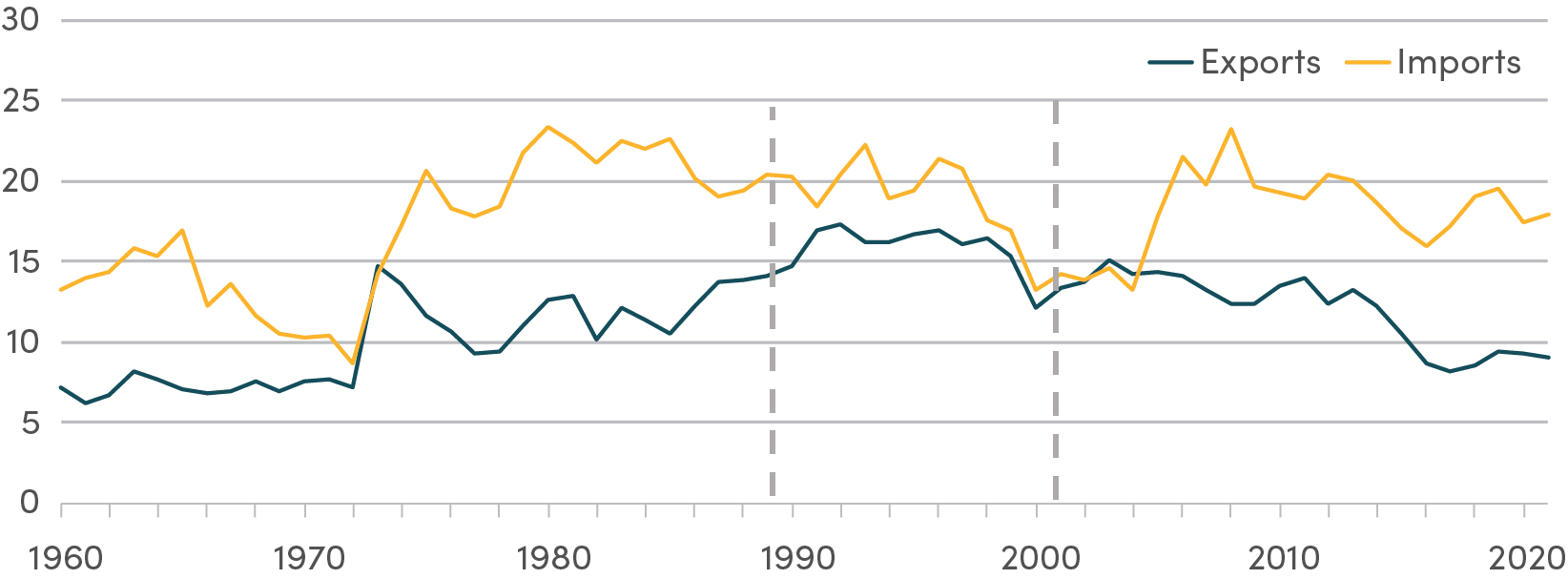Cambodia’s Prime Minister and former Khmer Rouge commander Hun Sen has called on the Trump administration to cancel Cambodia’s debt to the US Government incurred by the Lon Nol regime in the 1970s. Because the loans, which were used to pay for food purchased from the United States, have not been serviced, the total amount owed is estimated to now be more than US$500 million. While the Trump administration may not immediately embrace Cambodia’s request, it is worth both sides considering the possibility of a deal.
This is not a new issue. In fact, in 1995 then Prime Minister Norodom Ranariddh reached agreement with the Paris Club of creditors, including the United States, on a debt treatment that included partial cancellation. Unfortunately, unlike with other creditors (France, Germany, Italy, and Japan), the Cambodians refused to sign a bilateral agreement with the United States that would have enacted the Paris Club accord. In 2008, there was a congressional hearing on the topic and in 2010 former Secretary of State Hillary Clinton committed to send a team of experts to Cambodia to explore options. The subsequent talks went nowhere.
While the executive branch is clearly in the driver’s seat when it comes to debt relief, Hun Sen would be well advised to also direct his appeals to the US Congress. Under the “appropriations clause” of the US Constitution, the executive branch is generally prohibited from spending any funds absent “appropriations made from law.” And cancelling funds owed to the US Government would equate to spending the funds. In today’s budget environment, finding $500 million would be an extraordinarily difficult task, but under government accounting rules the amount needed would be less than the face value. The exact amount is calculated using a complex formula that takes into account, among other things, a country’s credit rating, the nature of the debt, and the US cost of borrowing. Cancellation generally costs a lot less than the face value of the debt, but even at 50 cents on the dollar, this would still be more than $250 million.
Rather than press for full debt cancellation, with its attendant political and financial challenges, Hun Sen may want to look to its next door neighbor, Vietnam, for a win-win solution. Like Cambodia, communist Vietnam was faced with paying debts that were incurred by the previous regime. And like Cambodia, Vietnam negotiated an agreement with the Paris Club of creditors, including the United States. But unlike Cambodia, Vietnam signed a subsequent bilateral agreement with the United States in 1997, an act of considerable courage by the Vietnamese leadership. As US Treasury Secretary Robert Rubin said at the time, “the signal sent by this agreement will be important to the rest of the world in building confidence in Vietnam in a way that will benefit its economy.”
Moreover, Vietnam benefited from a debt swap arrangement under which a portion of the funds that would have been paid to the US Treasury, in accordance with the Paris Club agreement, were funneled to an organization established by the US Congress under the Vietnam Education Foundation Act. During the life of the program, it financed the studies of over 600 Vietnamese students in the United States as well as teaching opportunities for US faculty members at Vietnamese universities. The United States also has experience managing debt swap programs in other areas, such as environmental conversation.
While a debt swap solution carries certain risks that need to be carefully addressed before any agreement is concluded, it would seem to be the only option that provides the elements needed by both parties to move forward in an amicable manner. For the United States, any agreement on Cambodia’s debt must be based on the 1995 Paris Club treatment. To do otherwise would risk breaking with the US commitment to the Paris Club and its principled approach to debt restructuring. For Cambodia, repaying the United States for debts incurred by the Lon Nol regime would only seem politically palatable if Cambodia received a direct benefit, as did Vietnam with its debt swap arrangement.
Given the myriad strategic challenges it faces in Southeast Asia and elsewhere, it is difficult to envision a debt deal with Cambodia rising to the top of the Trump administration’s “to do” list, particularly when Hun Sen’s interest in resolving the issue is subject to doubt. That said, if the Cambodian authorities exhibit a tangible commitment to resolving this bilateral irritant, President Trump and Congress should be prepared to offer a debt swap that could bolster a relationship in a region dominated by China.
CGD blog posts reflect the views of the authors, drawing on prior research and experience in their areas of expertise.
CGD is a nonpartisan, independent organization and does not take institutional positions.




